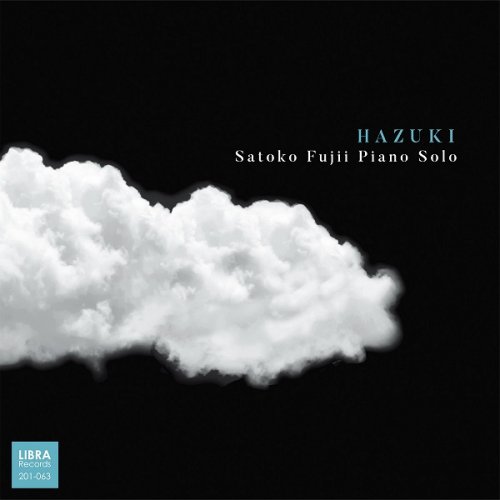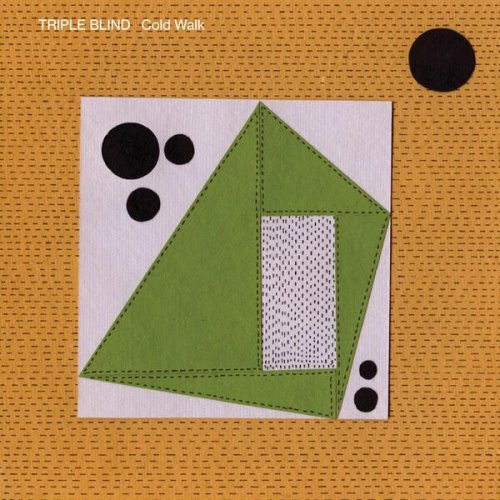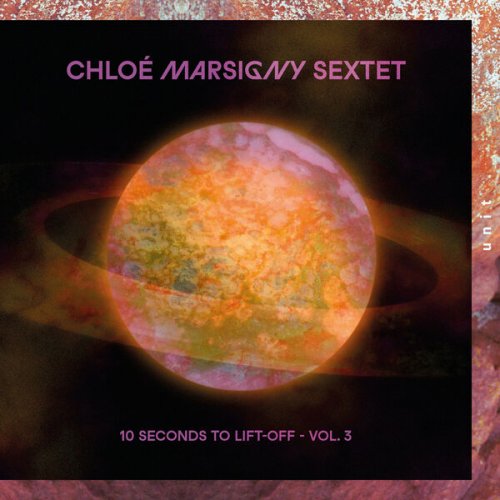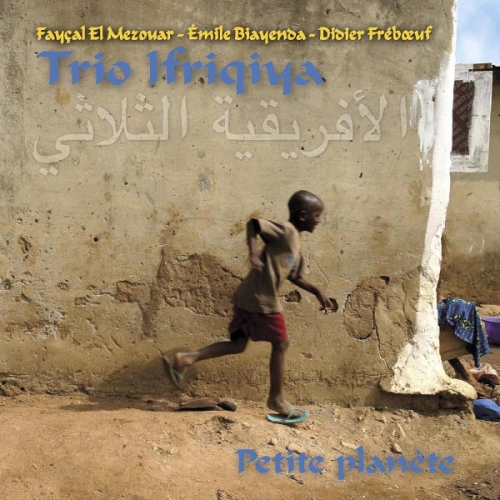Satoko Fujii - Hazuki (2021)

Artist: Satoko Fujii
Title: Hazuki
Year Of Release: 2021
Label: Libra Records
Genre: Jazz
Quality: FLAC (tracks) | Mp3 / 320kbps
Total Time: 48:17
Total Size: 186 MB | 110 MB
WebSite: Album Preview
TracklistTitle: Hazuki
Year Of Release: 2021
Label: Libra Records
Genre: Jazz
Quality: FLAC (tracks) | Mp3 / 320kbps
Total Time: 48:17
Total Size: 186 MB | 110 MB
WebSite: Album Preview
------------
01. Invisible 7:07
02. Quarantined 8:02
03. Cluster 4:18
04. Hoffen 9:04
05. Beginning 2:14
06. Ernesto 6:38
07. Expanding 7:42
08. Twenty Four Degrees 3:12
"Pianist-composer Satoko Fujii normally spends months on the
road each year, but the COVID-19 pandemic has made touring
impossible. On her new solo album, Hazuki, she lets the music
travel for her. Throughout the course of the pandemic, Fujii has
remained committed to her creativity and artistic growth and
determined to present her music, even if she can't do it before
a live audience. Recorded at home in her piano practice room,
Hazuki is buoyant in the face of adversity, playfully
imaginative, and as adventurous as all her albums typically
are. It is one of her most delightful and engaging solo outings.
Recording from home did present one advantage for Fujii. "I
have been playing my piano for more than 45 years. We know each
other well," she says. "I never expected that I would record on
it, but the COVID-19 situation forced me into doing it. On
tour, I play a different piano at each concert. Sometimes I
'meet' annoying pianos, sometimes I 'meet' really great pianos.
It's a gamble. But I have to tell you that it is easy for me to
play my piano because I already know it very well."
The mental preparation for recording in the apartment she
shares with her husband, trumpeter Natsuki Tamura, presented an
unexpected challenge. "When I'm on tour, I get in a touring
mode. But being at home is being in daily life mode. I had to
concentrate to get myself in "making music mode" in the middle
of my daily life. For instance, when I did my streaming
concerts, I went into the piano room and performed and after I
came out from the room, which is very close to the kitchen,
Natsuki was cooking! It was a very strange feeling."
Perhaps the most challenging circumstance was a physical one. "I
recorded the album in August," Fujii says. "The weather was
extremely hot, in the 90s. I don't have an air conditioner in
my piano room, and I need to close the door so the sound doesn't
disturb the neighbors. So in the small piano room, I was
sweating. I put an ice pad on my neck and that helped a bit."
She commemorates these arduous conditions in the title of the
album-"Hazuki" is an old Japanese word for "August."
What emerged from these unusual conditions is one of Fujii's
most diverse and ebullient solo albums. "Invisible" starts out
the album with some of her most imaginative and varied playing
inside the piano alternating with a haunting keyboard phrase.
She then begins altering the phrase, repeating it with most
variations and embellishing it. The music is lively, but
deliberately developed. On "Hoffen" (German for "hope"), she
also delves inside the piano, seamlessly integrating piano wires
and keyboard in delicate melodies that grow more lyrical and
rhapsodic. "Quarantined" develops a natural flow of long weaving
lines interrupted by knots of dense chords. "Beginning" is
similar, with a long sinuous right-hand line punctuated by
occasional left-hand chords that throw kinks in it.
Some of the compositions play around with musical ideas.
"Cluster" puns on the term for an occurrence of disease
outbreaks called "corona clusters" and the musical device of
note clusters, the striking of several notes that are close
together. The performance is built of ringing note clusters
carefully placed so the overtones created become part of the
music. It's intensely concentrated with every gesture
furthering the creation of a unique musical vocabulary. When she
composed "Expanding," Fujii deliberately limited the notes and
intervals she could use as a way to create a new vocabulary.
The dramatic performance stays focused on short, rhythmically
charged phrases that build tension and momentum."
road each year, but the COVID-19 pandemic has made touring
impossible. On her new solo album, Hazuki, she lets the music
travel for her. Throughout the course of the pandemic, Fujii has
remained committed to her creativity and artistic growth and
determined to present her music, even if she can't do it before
a live audience. Recorded at home in her piano practice room,
Hazuki is buoyant in the face of adversity, playfully
imaginative, and as adventurous as all her albums typically
are. It is one of her most delightful and engaging solo outings.
Recording from home did present one advantage for Fujii. "I
have been playing my piano for more than 45 years. We know each
other well," she says. "I never expected that I would record on
it, but the COVID-19 situation forced me into doing it. On
tour, I play a different piano at each concert. Sometimes I
'meet' annoying pianos, sometimes I 'meet' really great pianos.
It's a gamble. But I have to tell you that it is easy for me to
play my piano because I already know it very well."
The mental preparation for recording in the apartment she
shares with her husband, trumpeter Natsuki Tamura, presented an
unexpected challenge. "When I'm on tour, I get in a touring
mode. But being at home is being in daily life mode. I had to
concentrate to get myself in "making music mode" in the middle
of my daily life. For instance, when I did my streaming
concerts, I went into the piano room and performed and after I
came out from the room, which is very close to the kitchen,
Natsuki was cooking! It was a very strange feeling."
Perhaps the most challenging circumstance was a physical one. "I
recorded the album in August," Fujii says. "The weather was
extremely hot, in the 90s. I don't have an air conditioner in
my piano room, and I need to close the door so the sound doesn't
disturb the neighbors. So in the small piano room, I was
sweating. I put an ice pad on my neck and that helped a bit."
She commemorates these arduous conditions in the title of the
album-"Hazuki" is an old Japanese word for "August."
What emerged from these unusual conditions is one of Fujii's
most diverse and ebullient solo albums. "Invisible" starts out
the album with some of her most imaginative and varied playing
inside the piano alternating with a haunting keyboard phrase.
She then begins altering the phrase, repeating it with most
variations and embellishing it. The music is lively, but
deliberately developed. On "Hoffen" (German for "hope"), she
also delves inside the piano, seamlessly integrating piano wires
and keyboard in delicate melodies that grow more lyrical and
rhapsodic. "Quarantined" develops a natural flow of long weaving
lines interrupted by knots of dense chords. "Beginning" is
similar, with a long sinuous right-hand line punctuated by
occasional left-hand chords that throw kinks in it.
Some of the compositions play around with musical ideas.
"Cluster" puns on the term for an occurrence of disease
outbreaks called "corona clusters" and the musical device of
note clusters, the striking of several notes that are close
together. The performance is built of ringing note clusters
carefully placed so the overtones created become part of the
music. It's intensely concentrated with every gesture
furthering the creation of a unique musical vocabulary. When she
composed "Expanding," Fujii deliberately limited the notes and
intervals she could use as a way to create a new vocabulary.
The dramatic performance stays focused on short, rhythmically
charged phrases that build tension and momentum."
FLAC
IsraCloud : Download
Mp3
IsraCloud : Download


![Batila - In Light (2026) [Hi-Res] Batila - In Light (2026) [Hi-Res]](https://img.israbox.com/img/2026-02/23/8fny4jm9awckbp30f8iv1d4uv.jpg)
![VA - From the Archive Vol. 3... compiled by Volcov (2026) [Hi-Res] VA - From the Archive Vol. 3... compiled by Volcov (2026) [Hi-Res]](https://www.dibpic.com/uploads/posts/2026-02/1772033794_a3743742618_10.jpg)




